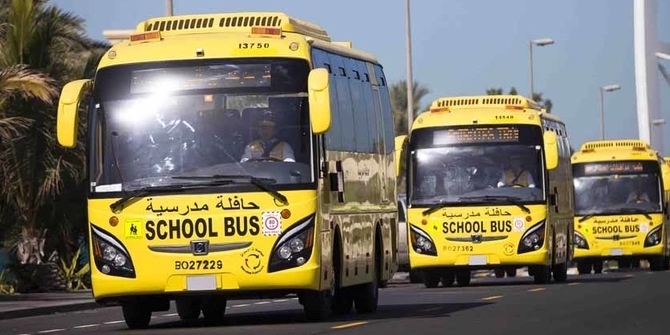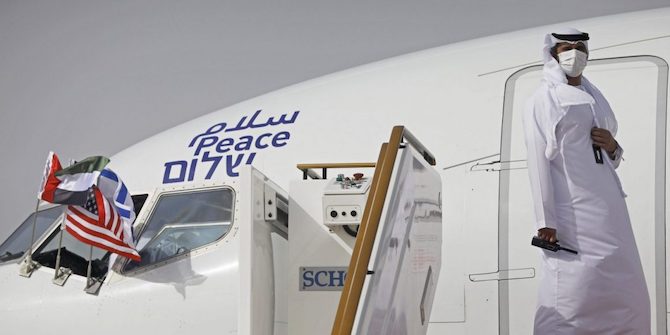by Nele Lenze
As part of the cultural production of the Indian diaspora in the Gulf, first- and second-generation migrants from Kerala have taken to publishing comedy videos on social media. This young generation create comedic memes and videos on the internet to present a unique perspective on their lives in the Gulf. The videos and memes are as diverse as the different Indian social groups in the region. Today’s Indian communities in the Gulf work in all sectors of business and development. There is a large population of labourers who live in unhealthy conditions, but also a middle and upper class who participate in business and cultural life. As the largest expat community in the region, Indians remit $30 billion annually. Currently, about 22 percent of the UAE’s population are Indian, most of them from Kerala. This expat population are referred to as Non-Resident Indians (NRIs) – Indians living outside of India, who are subject to a different legal framework than resident Indians. The difference in legal treatment has to do with taxes and investment regulations, as NRIs remit large amounts of money. Socially NRIs also have a special standing, connected to wealth and the exposure to foreign cultures.
Two prominent Malayali YouTubers living in the Emirates are Muhammad Akief and Ahmad Al Kaashekh. They live in Dubai and Sharjah, respectively, and have regular day jobs. In their free time they script, produce and act in videos that are widely circulated on social media. Both use as their material the experience of being from Kerala in the Emirates. We can see them interact with other expats and ‘Non-Resident Indians’, with Emiratis and with people they meet when visiting Kerala. All of the videos have comedic elements. The stories make fun of social conditions as well as differences stemming from ethnic, class and social backgrounds. Sometimes the jokes relate to language and misunderstandings. The academic discussion about humour in general ranges from scholars who claim it as a form of dissent and those who argue it supports the ruling system. An example of the way humour is used to talk about social conditions in the UAE, by Ahmad Al Kaashekh, can be seen in the video below. Here the humour highlights the common frustrations of Indian migrants in the Gulf. The story plays with stereotypes and shows the relationship between an Emirati and a Malayali mechanic, highlighting financial dependencies and the class divide. As part of the story the mechanic breaks out in song and dances in the rain (inside the garage) while explaining why one person may call him ‘rafeeq’ and another one may not. Rafeeq, an Arabic word that roughly translates to ‘buddy’ or ‘friend’, is a term that is sometimes used by locals to address any South Asian migrant in the UAE.
Playing with occurrences of song, dance and rain – identified as Indian tropes – makes the parody possible as the audience has knowledge of the original source material being parodied. The video uses comedy to highlight common situations between expats and locals while at the same time playing with elements of Kerala’s film history. This very industry started to blossom when money from the Gulf NRI community was invested into film production. The artistic development of Malayali films thus comes full circle as the films inspired by the life of Gulf Malayalis are now parodied by the second or third generation still living in the Gulf. These parodies are artistically created and financially supported by the conditions that they portray. Through comic relief and the normalisation of the NRI experience in the Gulf, the second generation reclaims the Gulf Malayali narrative. Their experience has otherwise been portrayed either as a flashy life of opulence (in Hindi films) or through films such as Pathemari or novels like Benyamin’s Goat Days, which show the misery of Keralan migrants. Using comedy, artists like Akief and Al Kaashekh provide a new take on these stories, promulgating their videos through social media without need for a big-budget production company. In recent years, larger media companies with social media outlets such as Filter Copy, Life Tak or Buzzfeed have also begun to use comedy to shine a new light on the NRI lifestyle, but rather from a resident Indian perspective.
NRI-produced comedy shows a type of community identity built not just on being Indian, but rather being a Gulf Malayali. Due to the lack of access to citizenship in the Gulf, another form of belonging is created. Neha Vora terms this belonging ‘neoliberal citizenship’.
Media Industry and Audience
Ahmed Al Kaashekh produces his videos while keeping a day job as a science communicator. Some of his videos are sponsored and he also acts in YouTube commercials for an Indian restaurant in Kuwait. Muhammad Akief scripts, edits and films his videos together with his brothers. All of them grew up in the UAE and work in the automobile industry, making time to produce videos on the weekends. His motivation for publishing the videos is the feedback he receives from his audience. All video producers interviewed for this research pointed out that they regularly engage with and study their audiences. Al Kaashekh and Akief both add subtitles to their videos, as Al Kaashekh states that he reaches a global audience, and not only the local and diasporic community. After audience analyses found that many viewers were not fluent Hindi, Arabic or Malayalam speakers, subtitles were added to all videos. Al Kaashekh also studies his audience through the comment section, with reader responses having become a crucial part of the video production.
It has long been debated if comedy has any power to change political or social conditions. It is certain, in any case, that these comedy videos on YouTube provide a unique voice, and playfully engaging with topics of importance to NRI youth, while at the same time catering to other expat groups in the Gulf that can relate to similar challenges.
A longer research paper on NRI YouTube culture will be forthcoming in the Journal of Middle East Culture Communications (Brill) special issue on film and visual media in the Gulf.
Nele Lenze was a Short-term Fellow with the Kuwait Programme in the LSE Middle East Centre. In September 2019 she began a lectureship in the communications department at RMIT Vietnam. She tweets at @nele_lenze







